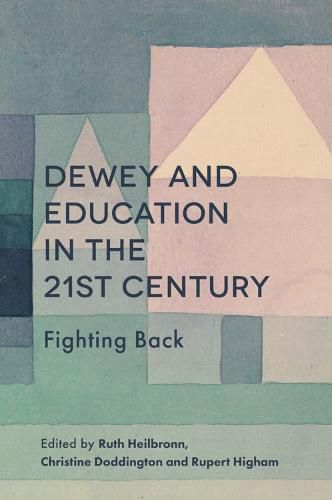Readings Newsletter
Become a Readings Member to make your shopping experience even easier.
Sign in or sign up for free!
You’re not far away from qualifying for FREE standard shipping within Australia
You’ve qualified for FREE standard shipping within Australia
The cart is loading…






This book makes a strong case for the abiding relevance of Dewey’s notion of learning through experience, with a community of others and what this implies for democratic education in the 21st century. Its first section addresses the experience of today’s generation of so-called ‘digital natives’ in terms of how we should now understand ‘knowledge’ and how their online experience creates opportunities and challenges for the curriculum, such as schools linking internationally to study classical texts; an exposition of why makerspaces, hackerspaces and Fab Labs might support Dewey’s democratic communities in our time, with on-line affordances of ‘a commons’, a space to use imagination and invent and share with others.
The book’s second section is original in its focus on the central Deweyan idea of ‘embodiment’ with chapters on Dewey and the Alexander technique and on experiences of Afro-American students, in public schools, especially those situated in multi-racial, multi-ethnic countries like the U.S. with deep, racial divides and tensions. The section ends with a chapter on the somaesthetic, educational value of learning outside of buildings.
A third section on experience related to democracy and education, has chapters on Dewey and the democratic curriculum, experience as a preparation for democracy, communication and the critique of individualism. Dewey’s notion of interest is analyzed and questioned as to whether it is a sympathetic notion for educational development.
With contributions from Spain, Cameroon, the US and the UK the book ranges across varied curricular and policy contexts to explore what reading Dewey can contribute to contemporary education studies.
$9.00 standard shipping within Australia
FREE standard shipping within Australia for orders over $100.00
Express & International shipping calculated at checkout
This book makes a strong case for the abiding relevance of Dewey’s notion of learning through experience, with a community of others and what this implies for democratic education in the 21st century. Its first section addresses the experience of today’s generation of so-called ‘digital natives’ in terms of how we should now understand ‘knowledge’ and how their online experience creates opportunities and challenges for the curriculum, such as schools linking internationally to study classical texts; an exposition of why makerspaces, hackerspaces and Fab Labs might support Dewey’s democratic communities in our time, with on-line affordances of ‘a commons’, a space to use imagination and invent and share with others.
The book’s second section is original in its focus on the central Deweyan idea of ‘embodiment’ with chapters on Dewey and the Alexander technique and on experiences of Afro-American students, in public schools, especially those situated in multi-racial, multi-ethnic countries like the U.S. with deep, racial divides and tensions. The section ends with a chapter on the somaesthetic, educational value of learning outside of buildings.
A third section on experience related to democracy and education, has chapters on Dewey and the democratic curriculum, experience as a preparation for democracy, communication and the critique of individualism. Dewey’s notion of interest is analyzed and questioned as to whether it is a sympathetic notion for educational development.
With contributions from Spain, Cameroon, the US and the UK the book ranges across varied curricular and policy contexts to explore what reading Dewey can contribute to contemporary education studies.